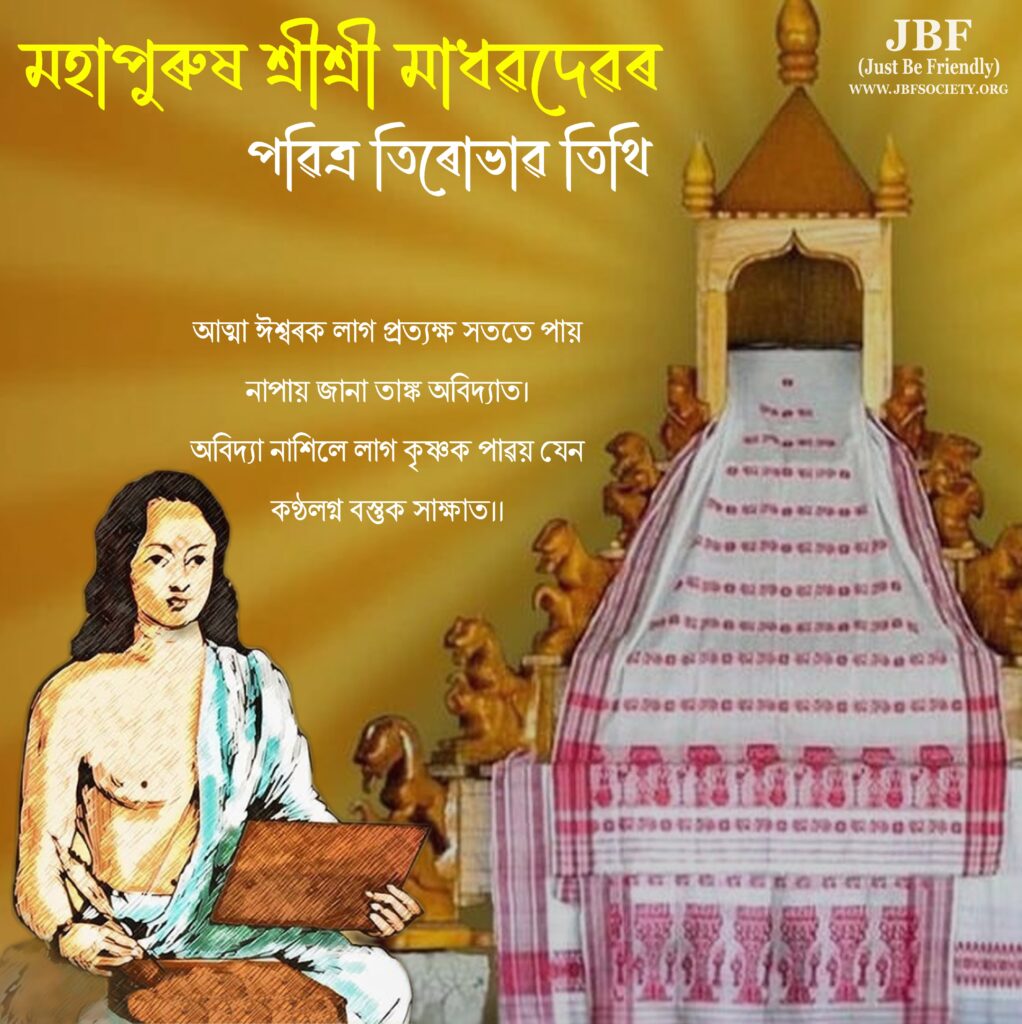There is a deep sympathy for all animals in the Navavaishnava religion introduced by Mahapurush Srimanta Shankaradeva. One of the main principles of this religion is to look at all living beings such as ‘dogs, jackals, godroves (‘কুকুৰ, শৃগাল, গদৰ্ভ’)’ with equal eyes, to accept the spirit of service by treating everyone as part of God. This empathy of the Navavaishnava religion is very strongly manifested in the prevention of sacrifices in the name of worship of gods and goddesses, the prohibition of the killing of animals for the purpose of eating meat, etc.
After Shankaradeva, this empathy has taken great precedence in the writings and thoughts of his follower Madhavadeva. The Mani-Kanchan connection between Shankara and Madhava was also based on the context of animal violence. In the Shankara-Madhava argument, Madhavadeva argued in favour of sacrifice on the pretext of the Vedas, and Shankaradeva refuted Madhavadeva’s argument by quoting against the killing and sacrifice of animals from the Gita, Bhagavata-Purana, etc.
By banning sacrifice, Shankaradeva and Madhavadeva not only opened up a new avenue of worship of God, but he also introduced a strong moral outlook in the present society, which covered humans as well as other living beings within the ambit of sympathy. Moreover, this religion tells people not only to refrain from causing physical harm to other animals, but also not to act violently towards any living being.
A devotee who, by feeling that the living being is God, avoids all forms of violence, physical and mental, is called ‘Uttam Bhakat’ by Shankardev.



